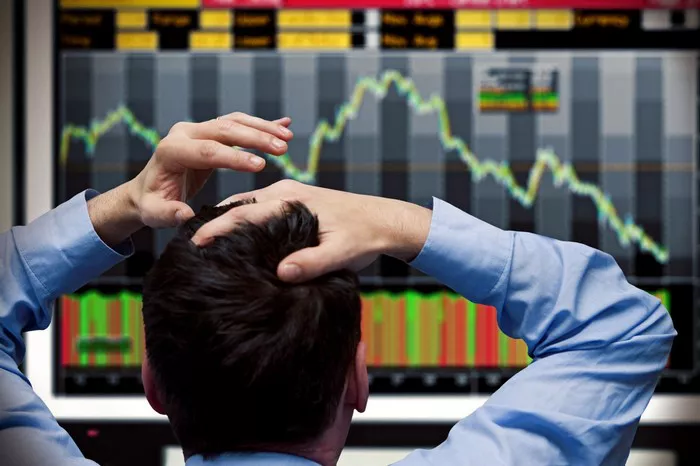In the dynamic realm of financial markets, futures contracts play a crucial role in facilitating trading and managing risk. These contracts, which derive their value from an underlying asset, allow investors to speculate on price movements or hedge against potential losses. Understanding the various types of futures contracts is essential for navigating the complexities of derivatives trading. In this comprehensive guide, we delve into the three primary types of futures contracts, highlighting their characteristics, uses, and implications for market participants.
1. Commodity Futures: Anchoring the Market
Commodity futures contracts are perhaps the most recognizable and historically significant type of futures. These contracts involve the buying or selling of standardized quantities of commodities such as oil, gold, wheat, or livestock at a predetermined price on a specified future date. Commodity futures serve as essential risk management tools for producers, consumers, and traders in the physical commodities market.
In the world of commodities, futures contracts provide a means of locking in prices for future delivery, thereby mitigating the risks associated with price fluctuations. For example, a wheat farmer may enter into a futures contract to sell a specified quantity of wheat at a predetermined price to hedge against potential losses resulting from adverse movements in wheat prices. Similarly, a manufacturer reliant on crude oil as a key input may use crude oil futures to manage exposure to volatile energy prices.
Commodity futures also attract speculative traders seeking to capitalize on anticipated price movements in commodity markets. These traders buy or sell futures contracts with the aim of profiting from changes in commodity prices. The liquidity and price transparency of commodity futures markets make them attractive venues for speculation and investment, further enhancing their importance in the global financial landscape.
See Also: Do stock futures predict the next day?
2. Financial Futures: Diversifying Investment Horizons
Financial futures contracts represent agreements to buy or sell financial instruments such as stocks, bonds, currencies, or market indices at a predetermined price on a future date. Unlike commodity futures, which are based on physical assets, financial futures derive their value from financial instruments or benchmarks.
Stock index futures, for example, allow investors to speculate on the future direction of stock markets without the need to trade individual stocks. These contracts track the performance of stock market indices such as the S&P 500 or the Dow Jones Industrial Average and enable investors to gain exposure to broad market movements. Stock index futures are widely used by institutional investors and hedge funds for portfolio diversification and risk management purposes.
Interest rate futures are another significant category of financial futures contracts. These contracts involve the buying or selling of standardized amounts of debt securities with specified interest rates and maturity dates. Interest rate futures are used by investors to hedge against changes in interest rates, which can impact the value of fixed-income investments such as bonds. By entering into interest rate futures contracts, investors can protect themselves from the adverse effects of interest rate fluctuations on their portfolios.
Currency futures, also known as forex futures, allow investors to speculate on the future exchange rates between different currencies. These contracts facilitate trading in the foreign exchange market and are used by businesses, financial institutions, and individual traders to manage currency exposure and hedge against foreign exchange risk. Currency futures provide a transparent and regulated platform for currency trading, offering liquidity and price discovery mechanisms that enhance market efficiency.
3. Equity Futures: Navigating Stock Market Dynamics
Equity futures contracts involve the buying or selling of standardized quantities of individual stocks or stock indices at a predetermined price on a future date. These contracts allow investors to gain exposure to stock market movements without the need to purchase or sell physical shares of stock. Equity futures are widely used by institutional investors, hedge funds, and individual traders for speculation, hedging, and portfolio management purposes.
Individual stock futures represent agreements to buy or sell shares of a specific company at a predetermined price on a future date. These contracts enable investors to speculate on the future price movements of individual stocks or hedge against exposure to specific companies. Individual stock futures provide flexibility and liquidity, allowing investors to take positions in a diverse range of stocks across various sectors.
Index futures, on the other hand, track the performance of stock market indices such as the S&P 500, the Nasdaq 100, or the Russell 2000. These contracts allow investors to gain exposure to broad market movements and diversify their portfolios across multiple stocks. Index futures are widely used by institutional investors and portfolio managers for asset allocation, risk management, and hedging purposes.
Conclusion
In conclusion, futures contracts represent versatile financial instruments that enable investors to manage risk, speculate on price movements, and gain exposure to various asset classes. The three primary types of futures contracts—commodity futures, financial futures, and equity futures—serve distinct purposes and cater to different market participants.
Commodity futures provide a means of hedging against price fluctuations in physical commodities, while financial futures allow investors to diversify their portfolios and manage exposure to financial instruments such as stocks, bonds, and currencies. Equity futures offer opportunities to gain exposure to stock market movements without the need to trade individual stocks, providing flexibility and liquidity in navigating stock market dynamics.
Understanding the characteristics, uses, and implications of each type of futures contract is essential for investors seeking to navigate the complexities of derivatives trading. By leveraging futures contracts effectively, investors can manage risk, enhance portfolio performance, and capitalize on opportunities in global financial markets. Whether used for hedging, speculation, or portfolio management, futures contracts play a vital role in shaping investment strategies and driving market dynamics.


